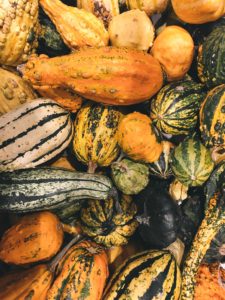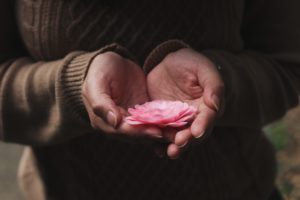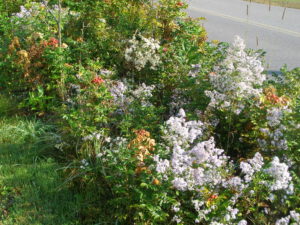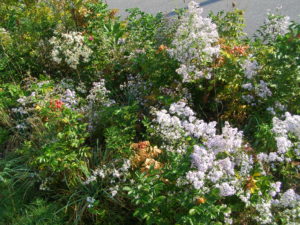by Jenny Rose | Feb 15, 2018 | Contribution, Emotional Intelligence
I’ve been trying to frame a post around generosity for several months. Interestingly and unexpectedly, the idea of generosity has remained a Gordian knot in spite of word webs, notes and lengthy simmering in the back of my mind. Since I began chewing on the idea of generosity, I’ve discovered Unsplash, a site offering free use of photographs for things like this blog, and now I finally feel I’m getting a grip on the subject.
Unsplash features more than 300,000 photos from more than 50,000 contributors. It’s free to use and free to join. Users may upload photographs for whatever they want as frequently as they want.
If generosity is unconditional readiness or liberality in giving, Unsplash is surely a fine illustration of the concept. The Internet is filled with people practicing their art. Some are trying to make a living. Many, like me, provide free content. Others start out contributing freely and then uplevel in order to earn a little bit of money with advertising, an Amazon affiliate program, a subscription fee, etc. In my view, some of the content out there is worth paying for, and other content is not.
Unsplash is worth paying for. Many of the photographers who contribute are professionals with content to sell, yet they continue to share some of their work freely with others.
Up to this point, I haven’t made a dime on this blog. It wasn’t about the money, but exercising my voice, my writing skills and my courage. I had no idea where it would go or what would happen with it. I had no idea if anyone would read what I wanted to write or how much I would grow to value the weekly practice of posting and maintaining a blog. I do want, however, to publish and sell my books in the future.
I think part of my struggle to get my head around generosity has been my own damaged sense of value. Those of us who feel we’re worthless assume we’ve nothing to give. I can’t tell you how many times I’ve declined attending a pot luck, a fundraiser, a party or even a funeral. I tell myself I have nothing to contribute, I was invited out of obligation or kindness, and nobody will even notice my absence.

Photo by photo-nic.co.uk nic on Unsplash
I am not Cinderella, and I do not possess a fairy godmother who will make me socially acceptable or worthy.
I wonder, looking back, if others have experienced me as being ungenerous or mean because of my lack of social contribution, when what was really at work was introversion, social anxiety and an abysmal sense of self-worth. I have no way of knowing.
On the other hand, I’ve volunteered my whole life. I’ve spent years working with children as a librarian, tutor, child development clinician, teacher’s aide, swim teacher and parent. I’ve participated in fire and rescue work as a volunteer EMT, as well as with animal rescue organizations. I’ve volunteered in libraries and as an oral storyteller, and I’ve volunteered as a dancer. I’ve worked in hospitals, nursing homes, public schools and libraries.
See? Nothing to contribute.
I earned a paycheck for some of that work, but one doesn’t get rich doing the kind of jobs I love to do, and the paycheck was never my motivation. I just loved the work. I felt as though I was making a difference in every one of those roles.

Photo by Annie Spratt on Unsplash
I’ve always limited the idea of generosity to financial resource. Part of my shame about my poverty is that I’m unable to be financially generous, which I’ve believed automatically makes me stingy and uncharitable. If my generosity is measured by what I spend, it’s so small as to be negligible. I’m a rotten capitalist consumer.
In thinking deeply about generosity, I can see how my beliefs have distorted my view. I wrote some time ago about the failure of money, and that peeled away some of my limiting beliefs, but only the first layer or two. If I make generosity about money, I can never be generous, and I block the financial generosity of others toward me because I can’t reciprocate in kind. My desire to give is greater than my desire to receive. I desperately want to make a contribution. I feel disempowered when I can’t reciprocate someone’s generosity in a way that feels equal, and then I disconnect.
Unhooking generosity from money changes the way I look at it. Developing some trust in my own value also changes the way I think about generosity. Now I wonder if money is perhaps the least reliable indicator of generosity, not the most. Money is very visible and obvious in the world, but that doesn’t make it the most useful contribution. There have been times in my life when I’ve been in desperate need of money, but many, many more times when I’ve been in significantly more desperate need of someone to hold me, someone to believe in me, encourage me and simply love me. Money is easier to come by, believe me, than love and acceptance. Writing a check, donating a few dollars to the organization of our choice or buying a gift is easier, for many of us, than effectively communicating our love and appreciation for those around us in words or actions.
Some people give only to receive. On the face of it, it looks like generosity, but it’s not. My understanding of true generosity is it has no hidden agenda. Conditional generosity is like conditional love; control and manipulation pretending to be something else. Behavior seeking power over others, or freighted with unacknowledged expectations, is the reverse of generosity.
Another way in which people use generosity to mask control is to force a “gift” onto another. In this case, someone informs us about what we need and we understand we’d better damn well accept it and be grateful. Refusal is out of the question because of an unequal power dynamic. Acceptance of the “gift” also perpetuates an unequal power dynamic, because we’re expected to demonstrate appropriate gratitude (as defined by the gift giver) for something we didn’t want or need in the first place. We’re not allowed to express or receive what we really need, only submit to what someone else needs to give in order to get something for themselves.
A good litmus test for discerning authentic generosity is whether it occurs in anonymity. People giving to receive will never do it quietly. There’s always a camera, a video, a witness or a headline. There’s always a score card, a quid pro quo. There’s always a distorted power dynamic. Such people give to reward and withhold to punish.
You want to star in my production? Meet me on the casting couch and maybe I’ll put in a word for you.
At the end of all this excavation, I’ve finally begun to make friends with generosity. I am capable of being truly generous, and I have generous people in my life. I can discern the difference now between the real thing and a ploy to maintain or grab power. I may not have money, but I can appreciate, marvel and share. I can say thank you. I can give anonymously. I can exercise a generous compassion towards myself and others for our weaknesses and mistakes. I can recognize my desire for reciprocity and power-with as important pieces of my own integrity and freely disconnect from people and situations that don’t support what I need.
This takes me back to Unsplash. I know in this day and age it’s hard to think past the money, but as a creative person on line with free content I can assure you no amount of money outweighs the gratification of knowing I’ve made a connection, that something I write resonates with someone else. Money is important, and I wish I had more of it. If I can uplevel the blog in small ways to earn a little bit of money, I’ll do it. The real reward, though, is when someone reaches out to me and says, “Yes! Me, too! Your words made a difference in my day.” It just doesn’t get better than that.
Because of that, I’ve developed a habit of contacting a couple of photographers every week whose work appears in this blog. Behind each photograph is someone living a life, struggling with the things we all struggle with, sharing their unique vision and eye with the world just because. Unconditionally. I go to their website, if they have one. I explore their pictures and read about who they are. I contact them and briefly introduce myself. I thank them for their collaboration with me, a collaboration invisible to them unless I reach out. I express my appreciation for their contribution. It doesn’t take very long. It’s not as fast as writing a check or reciting a credit card number, but it’s a lot more fun.
So far, every single one has responded to say thank you. Thank you for acknowledging my unique creativity. Thank you for taking the time to remember the person behind the camera. Thank you for collaborating with me so we enhance one another’s contribution.

Photo by Jeremy Bishop on Unsplash
There is no exchange of money in this generosity, only of humanity. They give freely. I accept the gift and add it to my own, paying it both forward and backward.
Generosity: Unconditional readiness or liberality in giving.
Please take a moment and meet photographers Jeremy Bishop and Annie Spratt.
All content on this site ©2018
Jennifer Rose
except where otherwise noted
by Jenny Rose | Nov 23, 2017 | Choice, Power
Last week, I explored the meaning and experience of anxiety. In doing so, I realized that all my anxiety has a common root in scarcity, which gave me the subject for this week’s post. Scarcity and abundance. What could be more perfect for Thanksgiving week?
Scarcity, according to a quick Internet search, is “the state of being in short supply; especially want of provisions for the support of life; unlimited wants in a world of limited resources.”
In spite of the fact that I come from a middle-class background, I’ve always lived with the bony specter of scarcity. As a child, I constantly feared there wasn’t enough, even though there was enough. We always had a home, and food, and clothing. The house was full of books and music. We had pets. We had cars. We even took vacations, a thing I was certainly never able to do with my own children. Still, I was always afraid we’d run out of money. The worst thing I could imagine was not being able to afford to feed and care for the animals! I was continually waiting for it all to disappear.
My insecurity around physical resource was not the biggest anxiety producer. What really ensnared me was emotional scarcity. It never seemed to me there was enough love, or patience, or joy. There wasn’t enough time, enough energy, enough hope. My feeling of emotional hunger led me to conclude that the problem was me. I was greedy and selfish. I wanted too much.
Most painful of all was my belief that I wasn’t enough. Not smart enough, not strong enough, not quick enough, not wise enough, not loving enough, not adult enough. I could see no cure for my inadequacies, no hope that I could ever be fixed, and, employing the heartbreaking logic of children, my conclusion was I didn’t deserve anything but scarcity.
Unsurprisingly, my experience since I formed that belief has been of scarcity on every level.
It’s important to note that in some significant ways this frame of scarcity has been useful. I don’t have “unlimited wants,” for example. In fact, I’ll rarely admit to wanting anything at all, which is a problem on the other end of the spectrum. I’ve never enjoyed shopping. I’m a reluctant consumer. I don’t long for gems or cruises, fine wines, luxury cars or elegant homes.
Living with restricted financial resource has taught me a lot about the limited power of money. What I value and want most, as well as what I most want to contribute, can’t be bought or sold. I’ve also learned unfulfilled wanting and longing can be lived with.
On the other hand, living from a position of scarcity has not only kept my anxiety fat and happy, it’s impoverished my courage, my ability to love, and my self-confidence. My belief in scarcity has sucked away a lot of my power.

Photo by Brigitte Tohm on Unsplash
What about abundance? Abundance is “a very large quantity of something; plentifulness of the good things of life; prosperity.”
When I started thinking about anxiety in the last couple of weeks, I began to notice its presence or absence during activities of my daily life. For example, when I deal with household needs and wants, bills, the grocery list, and think about jobs, I feel anxious. When I’m out walking, gathering cones, cutting greens for holiday wreaths, collecting the beautiful little Sensitive fern pods for crafting, I feel no anxiety and have no experience of scarcity. The fields, the woods, the river, the trees, the fall bracken and naked branches and twigs all speak to me of plenty, and plenty, and plenty again. Abundance is everywhere. There is enough. I am enough.
I wrote last week about my suspicion that my anxiety is a bad habit as much as anything. I wasn’t consciously choosing to haul around such a dreadful burden, but dredging it up from my subconscious into the daylight, specifically defining it and shining a light on it, allowed me to realize I don’t have to allow anxiety to run me. I can choose to disengage with it.
What if the frames of abundance and scarcity are also choices? What if I decide scarcity is no longer a useful label for my experience or self-definition, and I choose instead to believe in enough, or even in more than enough? Imagine it. Enough resources. Enough water and silence and time. An abundance of arms strong enough to hold me through the deepest hours of the night. A river of tenderness. A roomful of dancers. A strong, resourceful, wise, creative self.

Photo by Roderico Y. Díaz on Unsplash
Abundance is everywhere I look this morning, in the glowing wood stove, in the cartons of eggs stacked in the refrigerator, in boxes of wreaths I’m loading into the car to take to my friend’s farm store. Abundance is in writing these words, and when I glance from them I see, out the window, the infinite beauty of the November landscape.
It’s also true that we’re nearly out of bacon, and I know there are other items on the current grocery list. We’re heading into winter and haven’t been able to fix the leaky roof, but I suppose one could say there’s more roof than hole, so that’s a good thing!
Isn’t it really all just a cosmic balance? We can’t possibly take in everything at once in life, so we narrow our focus, and invariably find what we’re looking for. Changing our focus changes what we see. Perhaps abundance has always been hand-in-hand with scarcity and I’ve just never looked beyond what I knew and expected. How can these two concepts be separated? They make each other possible.
My anxiety is currently sulking and on a starvation diet. Scarcity is what it thrives on, but I’m kind of bored with that tired old goblin. I’m enjoying my new focus and filter of abundance. I like the way it makes me feel. It doesn’t make all the challenges go away, but it certainly balances them with a peaceful, satisfied feeling of enough, and I’m grateful.
It’s Thanksgiving Day as I post this. I wish everyone the abundance of the season in food, loved ones and joy.
All content on this site ©2017
Jennifer Rose
except where otherwise noted
by Jenny Rose | Sep 21, 2017 | Connection & Community, Emotional Intelligence, Holistic Management
Middle age is great fun. I’m constantly amused at how much time I spent during the first half of my life being ineffective. I’ve had heartfelt intentions, goals and plans and I’ve worked hard, but I’ve never understood a thing about simply letting life be. I know all about discipline and almost nothing about surrendering to the natural flow of anything, including myself.

Photo by Ester Marie Doysabas on Unsplash
A few months ago I read an article about what makes plants happy. It was a revelation.
I call myself a gardener. During some periods I grew most of my own vegetables and herbs. It was a lot of work. In Colorado, water was always a problem, and in my rural gardens deer were a constant threat. Keeping a garden weeded, mulched and watered, along with raising two little boys, working, and running a household on a shoestring, was quite a challenge. I thought I knew a lot about gardening.
Here in Maine I don’t garden. We don’t have dedicated garden space protected from the deer, for one thing. For another, my diet has changed and I mostly eat meat now. I’m also older, my knees complain bitterly if I spend a lot of time kneeling, and my body does not want to bend over in a garden every day.

Photo by Louis Maniquet on Unsplash
On the other hand, we probably have thirty or more apple trees, wild raspberries (red and black), wild strawberries, highbush cranberries, blueberries, elderberries, roses, an ancient and persistent grapevine of unknown variety, sugar maples, pear trees and nut trees spread out across our land. The whole place is a garden.
We also have a short hedge of beach roses, thickly thorned and tough, running right along the road on the east side of the house. It gets the snowplow drifts of snow, ice and sand in the winter and the heat, exhaust and sometimes trash of every passing vehicle in the summer. I couldn’t kill them with an axe. It’s not a tall hedge, but it blooms pink in the spring and provides a small barrier between the house and the traffic. In this season it’s loaded with fat red round rose hips.
In the spring, we saw a lot of dead wood in the rose hedge and we began to give it a heavy pruning. It had been neglected for years, and I was certain it would come back, thicker and healthier than ever. It was miserable to work on because the thorns, though short, are numerous and tough, and defy the heaviest work gloves. We got about halfway through the task and then Spring caught us up, along with many other projects, and we never finished pruning the hedge. I raked up what we did take out, pitched the debris over a bank so the thorns were out of the way, and did nothing else for it. The denuded hedge looked spiky and ugly until it leafed out.
In the ensuing months I’ve watched that hedge bloom as usual with its bright pink flowers. One day I saw wild buttercup was also blooming in the places we’d pruned. Wild violets crept around the edges. Yellow hawkweed moved in. After the buttercups came white and yellow daisies. Then a froth of Queen Anne’s Lace draped around it, and tall purple clover beckoned the wild bees. As those faded, I recognized goldenrod and wild asters beginning to grow. Every couple of weeks my partner mows between the hedge and the house. That’s the only care and attention it ever gets.
Wildflowers have bloomed, each in their season, mingling with the roses, all summer and fall. Now there’s a foam of purple and white wild aster and the roses are blooming for a second time, mingling with hips. The hedge is a riot of color.

Beach rose hedge 09/17
This takes me back to the article I mentioned about what makes plants happy.
The article points out that plants grow in the wild according to their evolution, needs and contribution in a system. Some plants are tall and grow in isolation. Others are immensely social and form clumps or swathes. Some plants like to creep along the ground and grow low. Others are quite high and grow with tall grasses because they need the support of the surrounding stems. Look at a natural meadow or field in summer that hasn’t been grazed or recently mown, and you’ll see a system of plants and grasses growing together with no input from humans. There are no bare places that need to be mulched. Nobody comes along and dead heads and tidies things up. As flowers fade and plants die, or are fed on, vegetable matter and seeds fall to the ground and become food or sprout into the next generation of plants. The meadow or field, if healthy, will have a full complement of insects, birds and small rodents present, and so on, up the food chain.
Okay, you get the picture. Biology 101, right? But that’s not a garden.
A garden is where we prepare the ground by banishing “weeds;” amend, dig and turn the soil by exposing it and sterilizing it and wearing out our backs; spend money protecting the area with fences, animal repellents, insecticides and herbicides; buy bags and bags of expensive manure, peat, top soil and mulching materials; spend more money buying plants, often without particular regard to whether they’re native to our area and with no idea or interest in how they grow in the wild; and plant them in solitary confinement, carefully spacing them out in sad little oases amid the mulch. We do not give them appropriate companions or communities, allow them to build a family around themselves or allow them to make the contributions they were evolved to make to other plants and wildlife.
We hold gardens to our own standards of neatness, cleanliness, obedience and beauty. We cut and tidy away brown leaves and spent blossoms lest they offend the eye, never imagining we’re depriving our plants of the free food they were evolved to need. We plant to please our color and variety preferences, never asking ourselves or bothering to find out what those particular plants need in order to be happy. We never imagine ourselves a shrew, or a chipmunk, or a grasshopper, and it doesn’t occur to us to lie on the ground with our chins in the dirt and appreciate the complex layers of plant life covering it. The only view we consider is the one from above, and the only layer we see from that vantage point is the top one.
That’s what we call a garden. Isn’t it beautiful?
We humans have an incorrigible, idiotic kind of blind arrogance, myself included. I confess I never once thought about observing how Nature gardens and modeling my gardens on hers. Not once. Yet Earth has survived for millions of years, creating rich, self-sustaining forests, swamps, grasslands and other habitats without the interference of human beings. We don’t think about the plants’ point of view, though. We come along, wear out our bodies, spend money, try to reinvent elegant and sustainable life systems and wonder why gardens don’t thrive.
Duh.

Beach rose hedge 09/17
I’ve been thinking about this article about what makes plants happy for months, and watching our little rose hedge. As we move into fall, I spend a certain amount of time pruning away dead wood and crowded saplings in many different places. We’ve cut a couple of old and dangerous trees. As I work, I carefully lay all the debris at the base of the plants I’m working on. I don’t uproot things. I don’t disturb the soil or the layer of wet rotting leaves on the forest floor. I cherish the sight of mushrooms growing everywhere, because I know they signal a healthy mycelium net underground, serving every plant and tree on the place and beyond. Apples and berries fall and rot where they lay, sinking back into the ever-richer earth. I notice how the wildflowers grow and spread and who they grow and bloom with. I’m making friends with the low ground-covering plants: Wild chamomile, wild strawberry, white clover, wild basil with its purple flowers, the sweet little violets and rabbit’s foot clover.
Unless in our way, we let trees lie as they fall and rot over time. We run the mower over autumn leaves and let them lie. We carefully stake volunteer or rodent-planted saplings to avoid mowing them, so the next generation of black walnut, maple, oak and beech can grow. We leave the tent caterpillars alone, because they provide food for birds, bears and other creatures.
I realize now all my neat gardening was driven by perfectionism, by a desire to feel in control, and by a need to please the eye of myself and others. I invested a lot of sweat equity in trying to garden “right” without ever questioning what that really meant. I made it much, much harder and more expensive than it ever needed to be.
It’s worth noting this is exactly the way I treat myself.
The rose hedge reanimated itself. It grows in the most inhospitable area of the whole place, but it knew just what to do. I stood back, let it alone and marveled.
You know what? I take it back. I’m not a gardener. But I do humbly enjoy a 26-acre garden.

Photo by Annie Spratt on Unsplash
All content on this site ©2017
Jennifer Rose
except where otherwise noted
by Jenny Rose | May 4, 2017 | Choice, Power
Last Friday I resigned from my medical transcription job. Shortly after emailing my letter of resignation to my supervisor, she called me, wanting to know why.
I told her the truth. I don’t feel as though my contribution matters. I don’t like the company culture of perfectionism and high stress. I don’t feel valued as an employee, and my skills and talents are worth more than I’m receiving.

Photo by rawpixel.com on Unsplash
We parted in a friendly manner. She assured me I was eligible for re-hire any time and wished me well. I wished her and the rest of the team well. Cyber handshakes and smiles all around.
I’m in the middle of selling a property back in Colorado. I currently have wonderful renters in the house. They’ve been honest, cooperative, open and have done every single thing they’ve said they would do. They’ve become friends. I’m faxing paperwork, including the lease with these tenants, to Colorado and working with my Colorado real estate agent long distance. The agent expressed surprise that our rental agreement didn’t contain language about punitive consequences if the tenants suddenly decided to break the lease and leave.
It never entered my head to limit my tenants’ choice to leave if they were unhappy. Obviously, at least one property professional feels this is inappropriate business practice, but why would I want to force two people whom I respect and like to stay in a situation that wasn’t working for them?
Answer: I wouldn’t want to, I didn’t want to and I don’t want to.
Last evening I had a long conversation with one of my sons, and among the things we talked about was the idea of noticing how things are within ourselves and the choices we make about our own unhappiness and discomfort.
This morning, as I fried bacon and sausage and worked in the kitchen, I was thinking about this week’s post, trying to come up with something I wanted to write about from my current experience, and suddenly all these interactions lined up in my head (Clunk! Clunk! Clunk!) and I thought, well, there it is. I want to write about quitting.
What do you think of when you think of quitting?

Photo by Milada Vigerova on Unsplash
I think of the word “should,” as in should quit smoking, should quit drinking, should quit eating so much sugar, should quit fill-in-the-blank. These are the kind of circumstances under which quitting is supported and validated, but the “should” is an instrument of shame, guilt and fear, as well as a thoroughly ineffective motivator.
I was taught being a quitter or a dropper outer is a desperately mortifying thing. Quitting is associated with betrayal, abandonment, failure, letting others down and weakness.
Quitting is often an act of aggression. It’s what we do when we’ve hung on by our fingernails until they’ve torn out, one by one, and we have to let go or die. It’s hitting bottom. It’s burnout, breakdown and nothing left to lose, often accompanied by scenes, meltdowns and an exchange of insults.
Quitting is selfish and irresponsible. Choosing to be happy is an embarrassing thing to admit. We’re told If everyone did what made them happy, everything would unravel. Nobody would work. Important things wouldn’t get done. The economy would collapse.
There are cultural consequences for quitting. The label “quitter” impairs our ability to get hired, find stable relationships or make financial choices. A quitter is unreliable and untrustworthy at best. Someone who quits their marriage, family or children is so despicable as to be unforgiveable in some cases.
The word quit, according to a quick search, means to leave a place, resign from a job or stop or discontinue an activity. In short, it’s a word that defines a choice. Interestingly, one of its origins is Middle English, in which it means “set free.”
Set free sounds a lot more positive than quitting, doesn’t it?
It occurs to me that the whole idea of quitting is rooted in power. To quit is to stop. How is it that the culture is so unfriendly and unsupportive, for the most part, of making a choice to stop? Why are we so consistently and pervasively discouraged from saying no, from quitting, from changing?
I’ve written before about the yes and the no. To be in our full power, both consent and dissent have to be available to us. We have to be able to make a real choice. The inability to freely choose points to a power-over situation, and it doesn’t matter if it’s work related, relationship related, addiction related or some internal limitation like fear. Something or someone is interfering with our power to freely choose if we can’t make a choice to quit.
Said a different way, the problem is not so much the addictive substance, the miserable job, the narcissistic family member or the abusive romantic relationship. The problem is we’ve been systematically amputated from our full power to choose.
Sadly, this is a consequence, at least in part, of our current educational system in the United States. It doesn’t work for a lot of kids. It didn’t work for me. It didn’t work for my kids. I told my sons the same thing I was taught when they complained. Education is important. Everyone has to go to school. It’s the law. We all have to do things we don’t want to. Being happy doesn’t matter.
Ugh. I wish I hadn’t believed that. I wish I hadn’t said it, and more than anything I wish I’d listened to their distress and taught them to respond to it appropriately by responding to it appropriately myself. At the time, all I had was what I’d been taught, and I’m absolutely certain my own mother taught me the only thing she knew as well.

Photo by Gemma Evans on Unsplash
The point is few of us learn how to respond to our discomfort or unhappiness, either by expressing it appropriately or taking action to help ourselves. Public education certainly doesn’t teach it. The way we work in this country doesn’t support it. Patriarchy in general doesn’t validate self-reflection, honest communication, or simply saying, “No more. This isn’t working for me. I’m stopping. I’m quitting.”
On the other hand, we’re great at demanding and commanding, as in “You should … You will … You must … You have to …” However, living in a cage of internalized and externalized shoulds is more power-over. When the shoulds have our power, we’re not free to choose. I know, because that’s how I’ve lived most of my life.
One of the hallmarks of power-over is its resistance to change. Change threatens the status quo. Traditional marriage vows are forever, no matter what. Many jobs reward length of service. We’re encouraged to grow up, settle down, get a stable life. Loyalty, dependability, reliability and predictability are all rooted in not changing.
But we do change. Our bodies change. Our needs and desires change. We learn new information. The things that captivate and delight us change. The best of us learn, grow, question, seek new experience, dance elegantly with challenge and tension, and develop a healthy relationship with being wrong. The best of us spend a lifetime making friends with our changing selves, investigating our motivations, our patterns, our behaviors and beliefs, our weaknesses and strengths, and doing battle with our fears and demons.
A relationship, job, priority or place may be a perfect fit at some point in our lives, and then be outgrown. A coping mechanism or response may work very well, even save our lives at one time, and cripple us at another. Life is always changing. The ability to flow with change, to welcome it and play with it, responding with free choice after free choice, defines a well-lived, powerful, elegant life
Quitting, like boredom, has a bad reputation. I suspect this is mostly due to a cultural smear campaign. My son is in his 20s, and as he shared parts of his experience with me, I realized we’ve arrived at the same place, he’s just 30 years ahead of his late-blooming mother. He’s reclaiming his power to respond to his own discomfort and distress and choose what to do, based on prior choices and how they worked out. He’s not waiting until he can no longer bear his unhappiness. He’s not quitting in a blaze of hand grenades and gunfire. He’s not self-destructing. He’s allowing himself to stop, to change, to leave. He’s setting himself free of what doesn’t work for him, and he’s doing it without guilt or shame or the need for outside validation.
Quitting is an art. I can be done with respect, gratitude and dignity. It can be a gift of love and authenticity to self and others. The right person for a job, place or activity is not someone who hates the job, place or activity. The right job, place or activity for us is not the one that makes us unhappy. Commitment, responsibility and keeping our word are all important things, but not unto death. Not unto madness and broken-down health. We are allowed to set ourselves free. We are allowed to change. We are allowed to learn. We are allowed to try and fail and move on.
I began this project of blogging with a letter of resignation. This week I sent another letter of resignation. In both cases, I hung on long after I knew I was miserable because I was afraid to make a change. I have more work to do in building trust with myself, but I’ve made a start.
I quit. My daily crime.
All content on this site ©2017
Jennifer Rose
except where otherwise noted
by Jenny Rose | Mar 30, 2017 | Emotional Intelligence, Feelings
In the last couple of years, a lid has been gradually slipping off a container in my mind labeled ‘BOREDOM,’ and I suddenly realize the contents of the can are now moving into all the cracks and folds of my memories and experience.
I don’t have much interest in boredom. I’m never bored and I’m greatly irritated by people who are. When I expressed boredom as I child I was either given something “productive” to do or told sometimes everyone has to do things they don’t want to do.
As a parent, when my kids expressed boredom, I gave them a long list of tasks or “productive” things they could do to help me. They usually declined, but they also learned quickly to stop saying they were bored.
I’ve often been told I’m boring.

Photo by Annie Spratt on Unsplash
There. That’s all I have to say about boredom.
Life was much more cut and dried before I became educated in emotional intelligence. Now I’m suspicious of cut and dried, especially if it has to do with feelings, patterns in my life or things that keep showing up. Boredom keeps showing up. People say they’re bored and I feel disgusted. People say they do self-destructive things because they’re bored and that excuse infuriates me. I take the boredom of others personally, as though I’m not entertaining or interesting enough to keep them engaged.
If I’m not interested in boredom, I ask myself, why does it make me so mad, and why does it keep catching my attention?
Why, indeed.
A couple of days ago I decided this week’s post would be about boredom, so I really started to think about it. I tossed around the concept of boredom with my partner. I thought about all the places it’s shown up in past relationships. I sat down and Googled boredom and looked at articles, quotes, memes, images and definitions.
I can’t tell you how often I’ve come to the page, either to write or research about something out there — a behavior or pattern I observe around me in other people — and discovered it’s not out there at all, at least not exclusively. It’s in here.
Remember what I said a minute ago? “I’m never bored.”
I’m suddenly realizing that’s not true. In fact, I suspect I’ve been chronically bored my whole life. The feeling of boredom, along with so many other feelings, simply got denied. It wasn’t until I started living more authentically here in Maine and stopped being bored that I could begin to see the colossal depths of my previous boredom.
Naturally, I’ve felt enraged when others express feeling bored while I can’t.
But why can’t I express it? What’s so shameful about boredom?
Oh, baby.

Photo by Jason Rosewell on Unsplash
First of all, being bored means you’re not working hard enough. You’re not being productive. You’re wasting time. You’re useless! You’re lazy! You’re a quitter! You’re irresponsible! You’re letting others down! You’re not pulling your weight! You’re a burden! You’re a failure! (This eventually trails away into a wild-eyed, gibbering mental shriek.)
When all the arm-waving drooling hysteria stops and I can think rationally again, what I’m left with is BUSY=GOOD and BOREDOM=BAD. This has the look and feel of first-grade logic to me, and I’m skeptical. I’ve spent a lot of my life staying busy in order to please other people and a lot of that busy was dead boring. School, for example. Busy and bored are not opposites. Busy without purpose is a recipe for compulsivity. On the other hand, the condition of being undisturbed and private with a book, paper and writing or coloring pens or even just a window and a cat with nothing in particular to do is a real pleasure.

Photo by Danny Postma on Unsplash
Somehow, somewhere along the way, boredom became the enemy in our culture. It’s a whine, a complaint, a danger and a discomfort to be avoided. It’s a weakness, even a sin (if you think in such terms). Boredom is a condition that must be fixed. Bored children get into trouble. Bored adults are not productive. Boredom is an excuse to use and abuse substance. People eat out of boredom. People have affairs out of boredom. Boredom, in fact, is to blame for a lot of undesirable behavior and choices.
Really? I don’t accept this. I’ve learned feelings — all feelings — can be thought of as value-equal data. We’re human. We have feelings. Some are more uncomfortable than others, but isn’t that largely a product of the thoughts and judgements we attach to them? Feeling a feeling doesn’t mean we have to act it out in ways to hurt others or ourselves. If we make destructive choices, our feelings are not the problem. What we do with our feelings is the problem.
It follows then, if I’m bored and I can call the feeling by name and recognize it, there’s information there for me. What is my boredom telling me? Here are some things I associate with my own boredom:
- I’m not interested.
- I’m not engaged.
- I’m not authentic.
- I don’t feel a connection.
- I can’t make a contribution.
- It’s too easy; I know how to do this; I can do more.
- I don’t understand.
- I’m overstimulated.
- I’m exhausted or ill.
- I’m overwhelmed with some other painful feeling, like fear, rage or grief, I’m refusing to deal with.
- I have a boundary problem; I’m taking on something belonging to someone else.
- I’ve been here and done this — not doing it again!
- My needs are not being met.
- I feel disempowered.
- I’m not in the right place.
- I feel limited.
- I can’t be curious or creative.
- I’m not safe.
This entire list is a map informing me where I’ve been, where I am and where I might go next. The feeling of boredom is the ground I stand on to read the map. My boredom doesn’t need to be fixed. There’s nothing shameful about it. On the contrary, it holds essential information and experience for me. It defines choices and supports power. Busy can’t create this essential space and quiet, but boredom can.
So much for not expressing boredom because it’s bad and busy is good. What else stood in my way all these years?
False Gods.
You see, I’m female. (By which I mean uterus, ovaries and menses.) Good girls, nice girls aren’t bored — ever — by males, including but not limited to male teachers, male family members, male romantic/sexual partners, male classmates and colleagues, and male bosses.
Now, before anyone climbs up on their high horse, understand I don’t hate men. Not at all. I’ve historically gotten along better with men than women, in fact. Also, I know things are different now than they were in the 60s and 70s when I was being socialized — sort of. There’s a lot more awareness and discussion of feminism and sexual politics.
However, a big part of my training had to do with “respect,” (also loyalty, responsibility and duty) and just about the only person not included in those I was taught to “respect” was myself. Respect was demonstrated by things like being silent while the men spoke, obedience, and being properly grateful for and attentive to mansplaining . Respect meant adapting, adjusting, and limiting myself so as not to challenge, threaten or compete with men. My role was to learn to “act like a lady” and be compliant, sweet and attractive.
You might not have noticed, but that training wasn’t notably successful.
Boredom and respect are not a happy team, so of course I kicked boredom to the curb. Respect meant love, validation, tribe, straight A’s, husband, children, a good job and a normal life. Boredom with addiction, violence, abuse, rigid thinking, inability to grow, absent creativity and curiosity, uninspired sex, toddler-level communication skills, power and control games, mind fuckery, omnipresent TV, unending housework and financial grind was absolutely out of the question.
Until now.
As for other people calling me boring, we’ve already covered that in a previous post. It’s a projection. My feeling of boredom is not about others and their boredom is not about me. I’ve been a lot of things in my life, but boring isn’t one of them.
That empty can in my mind labeled ‘BOREDOM’ was filled with something I want and need. Who knew? Going forward, I’m reclaiming my boredom. I’m welcoming it like the wise old friend it is, naming it, honoring it, embracing it, standing hip-deep in it and reading the map of my life to chart a course for what I’d like to do next.
And I will never, ever again try to fix, discourage, stifle, diminish or deny someone else’s boredom. I will instead congratulate them for feeling such a vital, vibrant feeling and ask them my favorite question:
“What would you like to do now?”

Photo by Joshua Rawson-Harris on Unsplash
All content on this site ©2017
Jennifer Rose
except where otherwise noted














